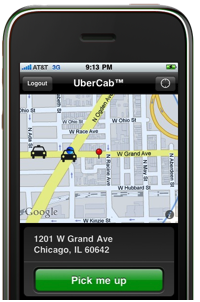If you're an entrepreneur looking to build an app, chances are you are going to have to make smart decisions to save development money and time.
In an ideal world where money wasn't an issue, having a web app and a mobile app would probably be ideal – think about some of the main apps out there like Facebook, Instagram, Twitter, Spotify and so on, they all have a web version and iOS and Android apps – but if you're under a tight budget, it's possible that you can save lots of money and time by choosing the right platform for your app.

Like most decisions in the life of an entrepreneur, there are different sides to this question:
What option better suits my business model?
There is no absolute way to determine this, but there are some factors that can help you decide.
If your app will be used mostly by users on the go, chances are a mobile app is more suitable. Think about Uber or Lyft as an example. It's very clear that their most common use case is better served with a mobile app. People wish to have the ability to request a ride wherever they are. Also, requesting a ride doesn't require heavy user input, so doing it from the phone seems like the most natural option.
On the other hand, if you were planning on building a project management tool like Jira, which will be used by users mostly during work hours from their computers, a web app is probably the better option.
If your project management tool starts getting traction and generating revenue, you could invest in building native apps for it, which could come in very handy for users while on the go, but for your MVP you're probably better off with a web app.
Is a responsive web app enough?
It could be, but not for all cases.
If you're launching an Uber-killer app, I would not start with a web app, but would definitely focus on mobile first.
If you need a desktop version but also need users to be able to access it from their phones, a responsive web app could be a wise cost-effective solution.
Mixed approach
A mixed approach could also be a good solution.
If your app features a long registration process, where maybe users have to fill different forms, upload files and other tasks of the sort, a web version would be optimal in terms of UX. But you may have features that are better suited for a mobile app. In that case I would consider having the sign up process built on web and the other features on a mobile app.
Let's go back to the Uber-killer app example to illustrate this.
As already mentioned above, I would start with a mobile app for the core of the business, which is requesting and fulfilling rides; but I would consider for my MVP, having the driver's sign up process built exclusively on a website, and have drivers complete it before installing the mobile app they will use every day to get rides. By doing this you're able to test and validate your core differentiating concept sooner, at a lesser cost, which means you can hone and tweak more important aspects of your product without spending precious resources on features that are not as necessary at the beginning.

Uber's MVP iPhone app called UberCab
Final thoughts
There's no absolute way to determine which format is better for your MVP, and there are multiple approaches you can take. In fact, there's a big aspect we haven't covered in this article, which is the choice between building native mobile apps or hybrid – but that's a whole other discussion we'll save for another time 😉
Hopefully this article will be at least a little help when starting to shape what your MVP will be like.
Let us know in the comments below if you have any questions or feedback. You can also contact us at [email protected] or visit our site for more info about us.




